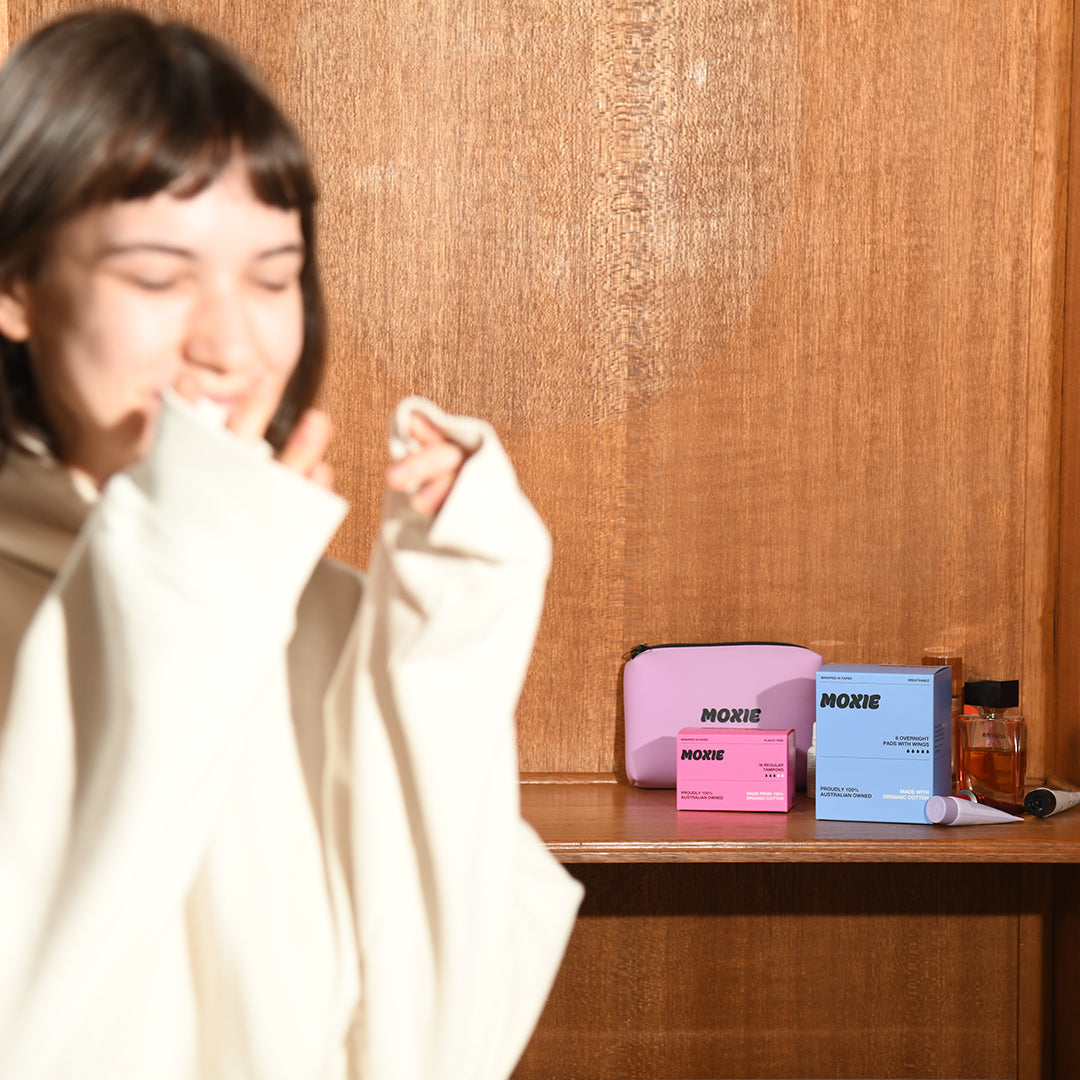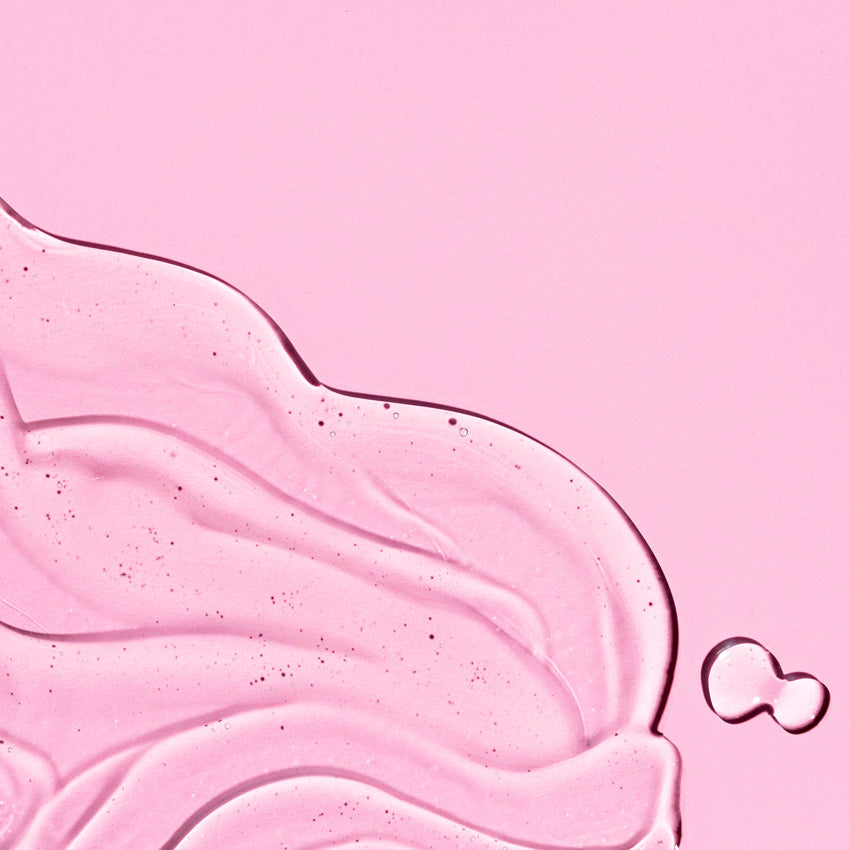How to have the period talk with your kid.

Words by Xenia E.
Think that talking about periods with your kid is a one-and-done conversation? Quite the contrary! By continuing the conversation about periods, you help normalize them and make them not too taboo to talk about. Your kiddo might feel more comfortable coming to you with questions the more you show them it’s okay to bring it up.
Talking to your kid about periods might seem like an overwhelming task; there is much to cover! So let's dive in.
Pro tip: don’t wait until after they get their first period to start having these conversations, and don’t try and pack every piece of info into one chat; that’s a lot to handle (for both of you!)
Second tip: Don’t assume that your kid already knows everything from sex-ed class. Instead, start from a clean slate as if they know very little. It might be helpful to think back to when you were their age: what did you most want to know? What was missing from your period education?
TALK ABOUT PERIODS OFTEN
First thing’s first: you can normalize periods when your child first starts asking questions, by how you respond.
Normalizing how you speak about periods yourself can help. Example? If you’re cramping, tell your kid why!
Attitudes and how we talk about periods can shape our children’s feelings about them. So keep your facial expressions relaxed. If you seem calm, chances are they will start to feel calm, too.
Talking about periods frequently will take the burden off of you to cover everything in one go, or not make any mistakes.
WATCH YOUR WORDS - CALL THINGS AS THEY ARE
Be sure to use anatomical language and skip euphemisms that hide the experience. Incorrect terminology for vulvas and uteruses breeds shame, so say exactly what you mean.
Speak about periods around the family, whether or not everyone bleeds. You might explain to your kids that periods are a natural part of puberty, and it’s important to know what different bodies experience, even if that body doesn’t belong to you.
"WHAT'S GOING ON WITH MY BODY?" EXPLAIN WHAT THEY CAN EXPECT
A recent study by Period and Thinx found that 79% of teens felt they needed more in-depth education around menstrual health.
You can concisely explain to your child why their body bleeds, so they know what’s going on when their period comes. Children’s Hospital of Los Angeles sums up the process as the following.
“Menstruation is when the body becomes physically capable of becoming pregnant. Each month, one of the ovaries releases an egg. This is called ovulation. Hormonal changes prepare the lining of the uterus to accept the egg for pregnancy. When ovulation takes place and the egg is not fertilized, the lining of the uterus sheds and drains through the vagina. This is called a menstruation or a period.”
It’s best to keep it anatomical, simple, and concise.
PREPARE THEM FOR THEIR FIRST PERIOD
Remember, everyone starts bleeding at different ages, some as early as age eight, most average around age twelve. It’s helpful to prepare your child for what they might expect the first time. For example, they might notice brown blood instead of red, and it might look more like spotting the first day instead of a heavy flow. Just assure them that what they might experience is normal.
Getting your period the first time can bring up a host of symptoms that can feel overwhelming—it’s helpful to know what to expect. Make sure to address cramps, headaches, tender or sore breasts, and mood changes as potential symptoms your kid might experience.
HELP THEM UNDERSTAND HOW TO USE PERIOD PRODUCTS
Handing your kid the pamphlet in a tampon box might be tempting, but it can be helpful to learn how to use products step-by-step from a trusted caregiver with a calm voice. Show them how period products work. This is an excellent time to let your kid open the product and ask any questions.
You can also reassure them that if internal products like tampons seem scary at first, they can use pads or period underwear. It’s helpful to present options and ensure they have access to products before their period starts.
Our 'Welcome to Periods!' period starter boxes are designed just for new bleeders, with everything they need to prepare for the first time, including product options, a hot water bottle, and, of course, chocolate.
Be sure to go over when to change products and how you can wear different products for different lengths of time. Heavier period days call for heavier products than, say, a panty liner. Different products might work better for different activities, too. For example, if you’re going swimming, you might choose a tampon or cup over a pad.
Leave period products around the house in a space your kid knows about and is accessible. You might also have your child stick a few products in their backpack so that they’ll be prepared if they start bleeding at school.
Finally, and maybe most importantly, be sure to create a space where your kid can bring up any feelings around periods or concerns with you.
GIVE THEM ACCESS TO MORE INFO
Chances are after you talk to your kid about periods, they might still have lingering questions. Leaving age-appropriate books about periods around the house or on their shelf is a great way for them to access answers to their questions.
Let your kid know you’re there for anything they might be curious about and keep the line of communication open! Remember, an ongoing conversation is best.

About the writer
Xenia (she/they) is a freelance sex and mental health writer. She focuses on sex work, LGBTQIA+ issues, menstrual equity, and trauma. She holds a BA in writing from The New School. She’s currently based on the West Coast. Xenia enjoys hiking less than 10 miles, cooking vegan food, and hanging out with her girlfriend and rescue pup.



